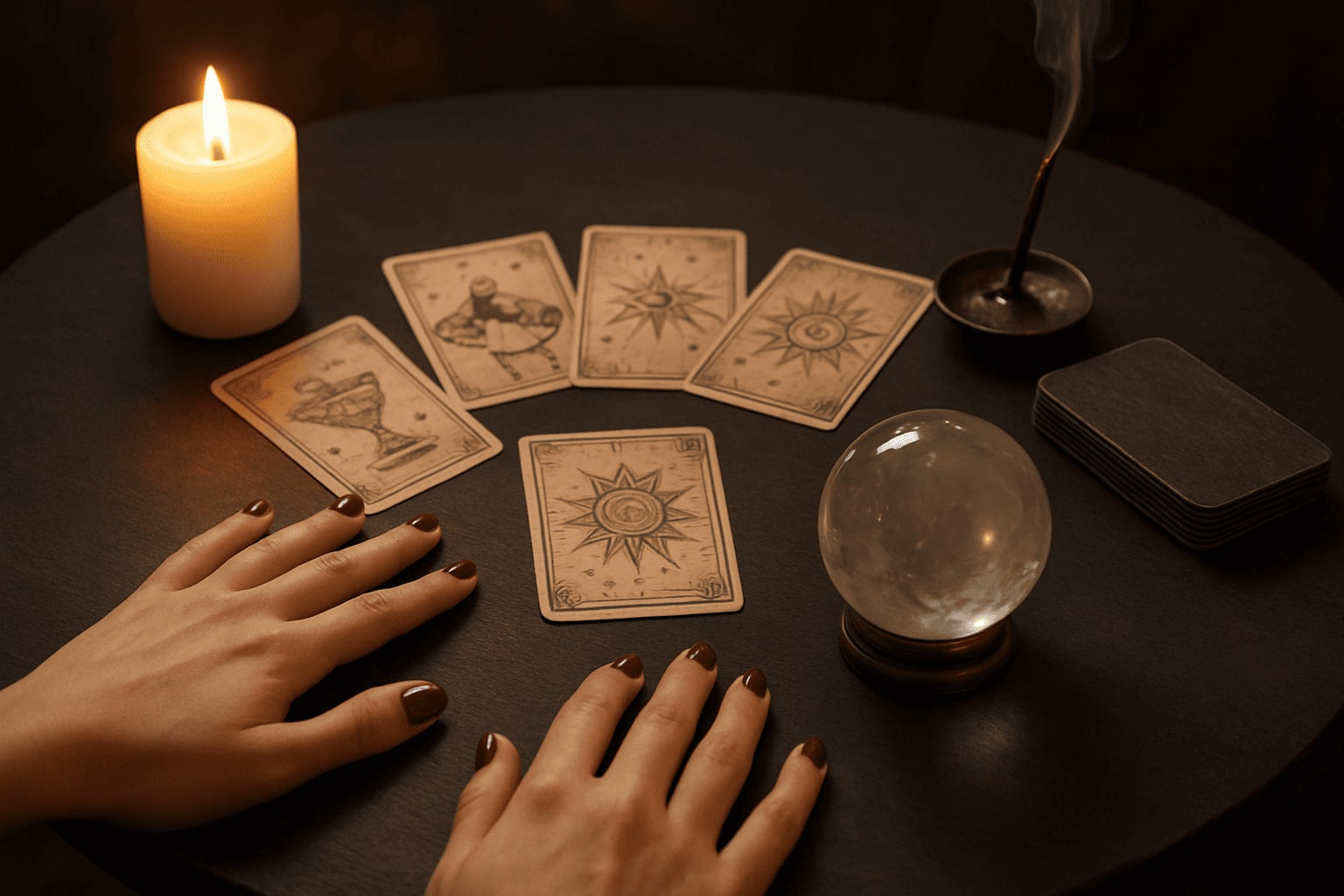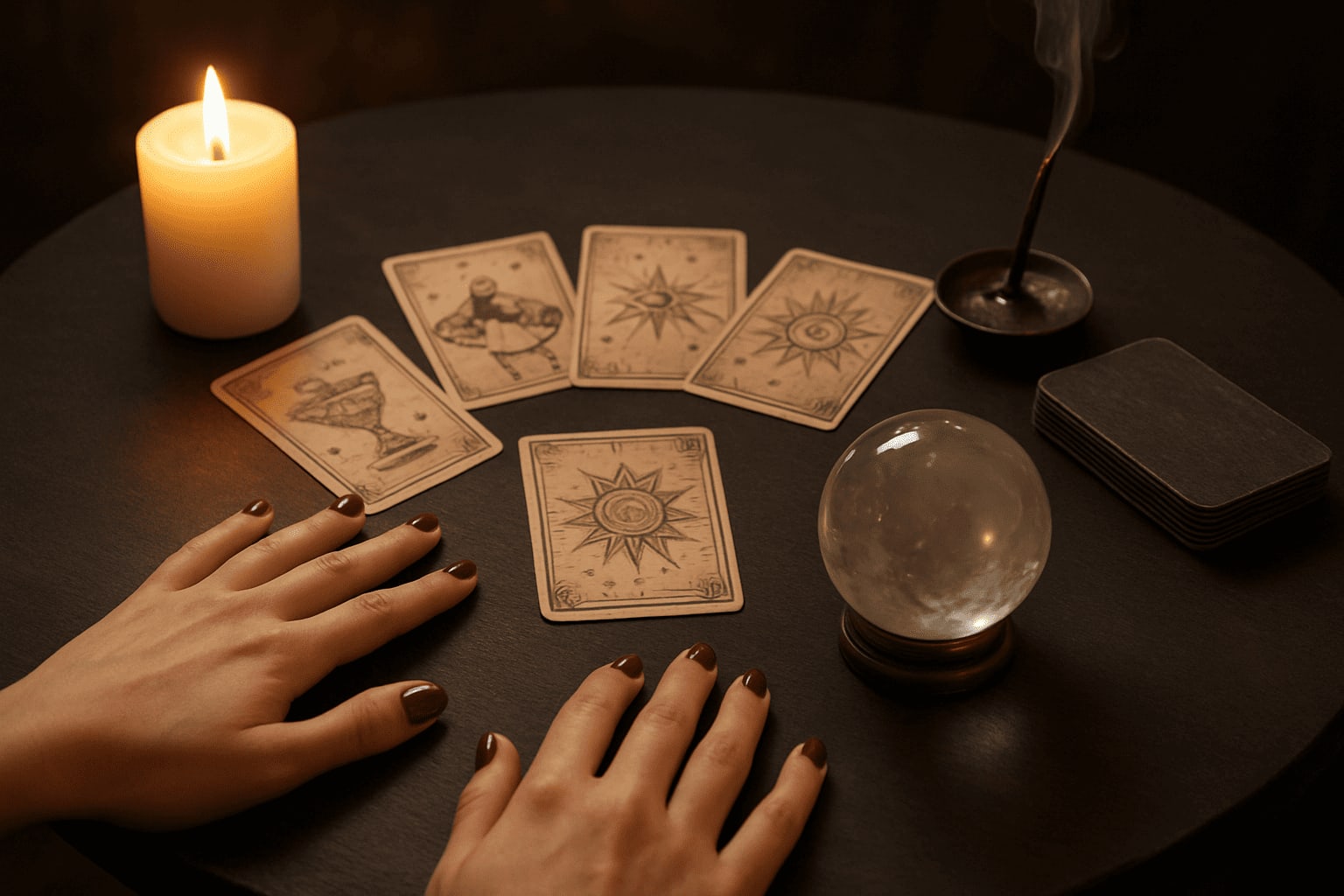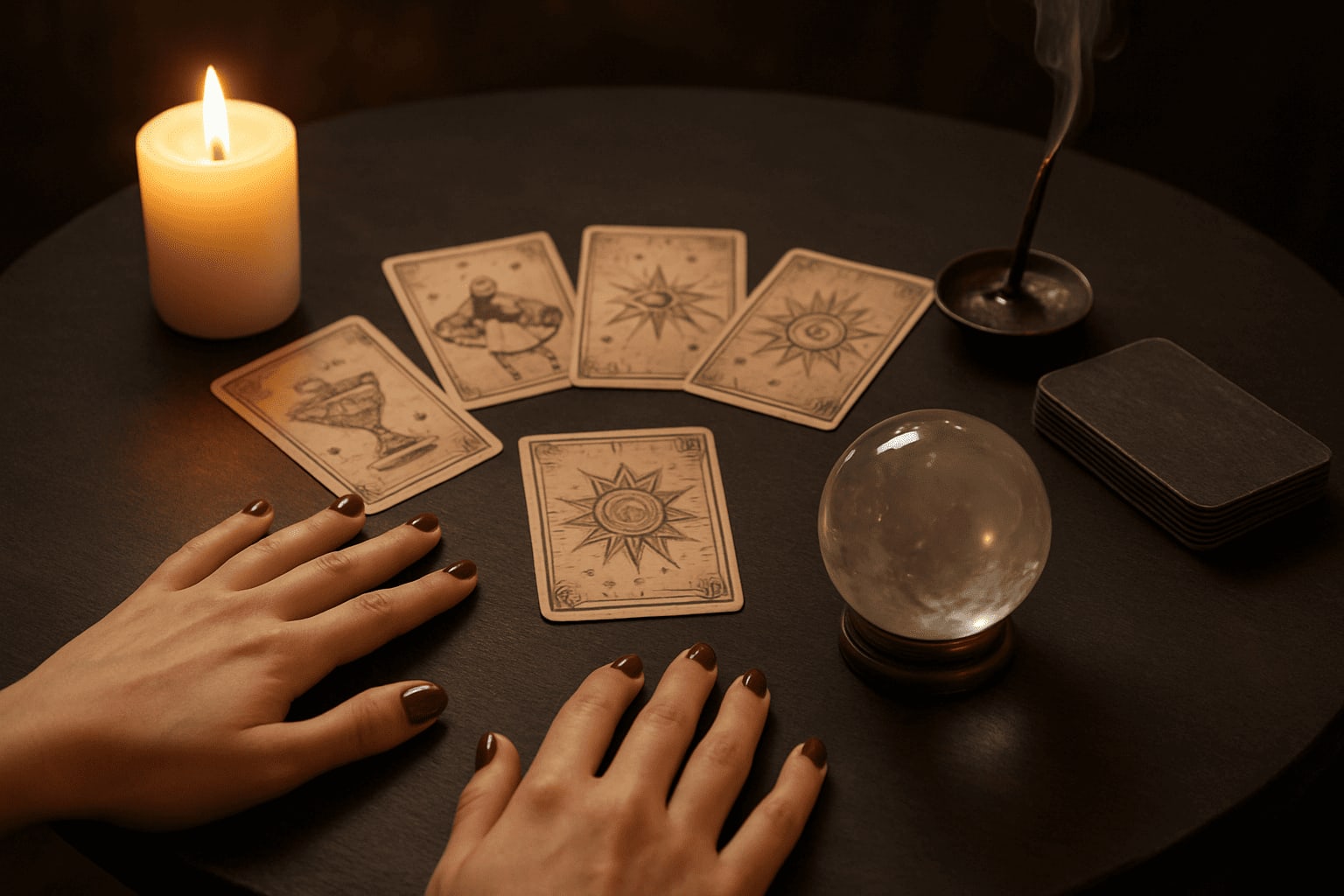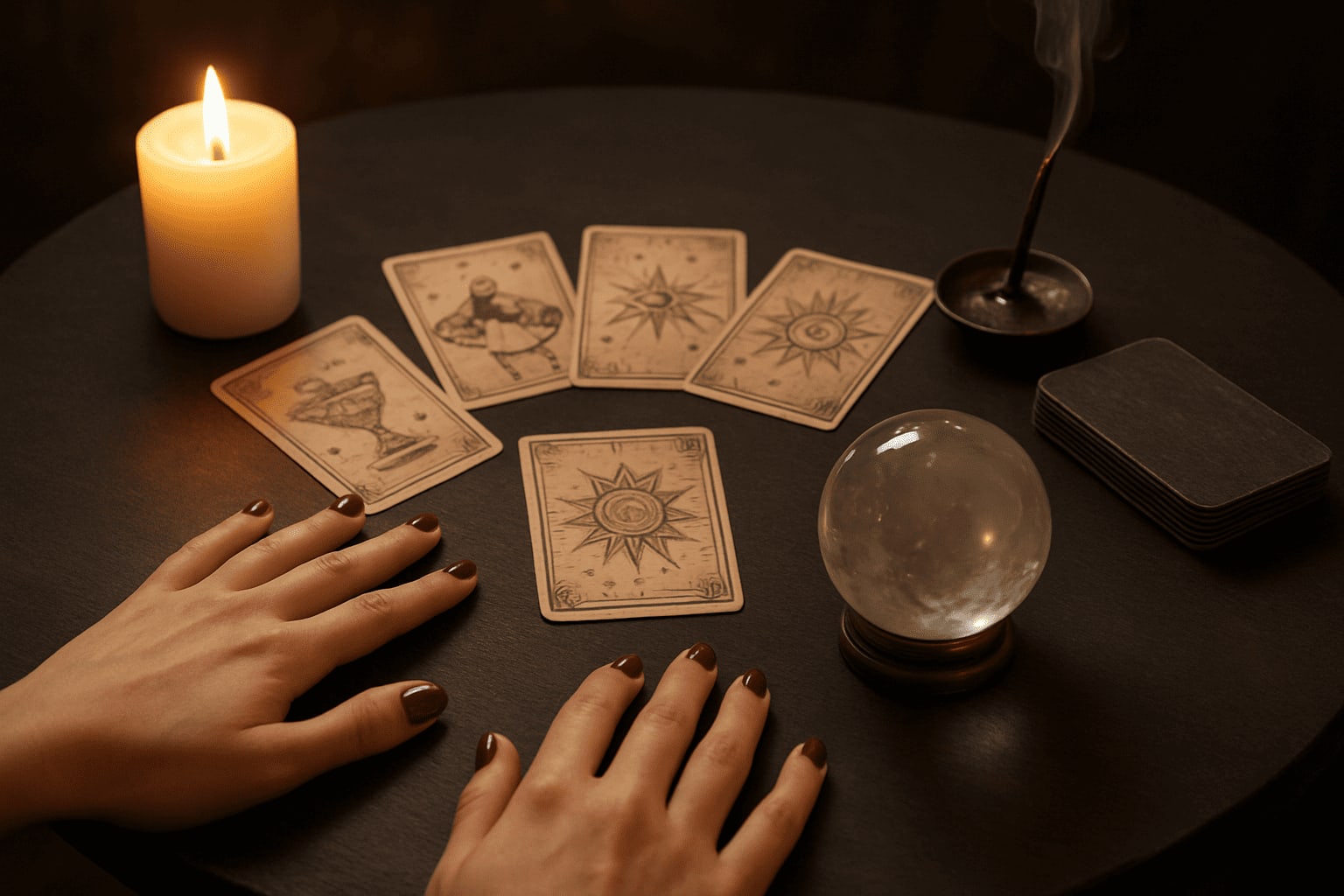Vedic astrology reads the exact astronomical configuration of the planets and zodiac constellations with a focus on the moon, while Western astrology focuses on the sun and seasons. Furthermore, Western astrology and horoscopes focus on the mind. It is psychological and reads more into our behavioral patterns and perceptions. In comparison, Vedic astrology focuses on an individual's Karma and realignment with cosmic law, dharma.
Understanding your Vedic astrology birth chart can begin self-undoing and help you understand your true inner spirit and personality.
» Want to learn more about Vedic astrology? A psychic reading from one of the best online psychic reading sites can help you understand your Vedic chart.
1. Vedic Astrology Looks at Your Nakshatra
Your nakshatra is your planetary placement in set lunar mansions. There are 27 lunar mansions, and each nakshatra is further divided into quarters or padas. In Hindu astrology, each pada is associated with a syllable referencing the first syllable of a child's name when the moon was in the selected pada.
For example, if your moon falls in Dhanishta Nakshatra in the fourth pada, you are an Aquarius. You are an individual who is trustworthy, secretive, and multitalented. You are an expert in what you do and sharp with your words, but you would never harm others.
2. Vedic Astrology Looks at Your Doshas
Your doshas are the problems and obstacles you have accumulated from your past life reincarnations. These doshas can be seen as curses and manifest in your relationships, career, finances, and family. Doshas are determined by looking at the placement of a planet.
For example, if your sun is placed in your 7th house of marriage and business partnerships, it is said that you will marry or go into business with a wealthy and reputable man who is a father figure. Your father may have been absent or abusive in childhood. As a result, you could have a rebellious and argumentative streak with bosses and authority figures.
3. Vedic Astrology Looks at Your Sanchita Karma
Your sanchita karma is your past life karma. It is the circumstances, behavioral patterns, and traits you have accumulated from your past life thoughts, actions, and deeds.
This karma determines whether you are unhappy or happy in this life. It is the Karma that is comfortable and easy to fall back on. It keeps you chained to a specific energy type: relationships, work, habit, family, or health.
4. Vedic Astrology Looks at Your Prarabdha Karma
Our sanchita karma is like an imprint of our baggage from a past life, and it manifests in our present life as karma that we need to work through, also known as prarabdha karma. It is the process of choosing to work through the karma and change your destiny or allow it to dictate your present life.
If you are highly influenced by your family and circumstances, unwilling to change, and feel trapped, you may be allowing preset karma to dictate your future.
5. Vedic Astrology Looks at Your Kriyaman Karma
Our kriyaman karma is our freedom of choice. It is the karma that we create for ourselves if we follow our thoughts and actions in harmony with cosmic law.
A courageous, strong, and independent person works through their prarabcha karma, makes the right choices, and is mindful of their thoughts, words, actions, desires, and emotions. They create their future, breaking free from past life issues, traumas, generational beliefs, and habits.
6. Vedic Astrology Looks at Your Moksha and Jivanmukti
If a person has freed themselves from karmic debt and reached liberation or release, they have reached the state of moksha. It is the end of the reincarnation cycle of death and rebirth. Through self-realization and knowledge or destruction of the ego, you have worked through your karmic debts through punishment (the idea we create our suffering) or good deeds and worship.
Reaching this state of moksha is called jivanmukti: when your behavior and nature are humble, calm, patient, and compassionate. You do not worship a deity or ancestors nor dismiss them. You do not place importance on religious rituals, as your knowledge is self-supreme.
7. Vedic Astrology Looks at the Characteristics of the Zodiac Signs
Like Western astrology, Vedic astrology looks at the personality traits of each of the 12 zodiac signs. However, they hold different characteristics than their western companions.
For example, an Aquarius ascendant may have a heavy desire to communicate and be patient and clever. At the same time, a Libra ascendant can be highly devoted to their spirituality, an influential debater, and brave.
8. Vedic Astrology Looks at the Aryuveda Doshas
The Aryuvedic medicine consists of three doshas based on the elements: pitta, vata, and kapha. Each dosha has set qualities that govern the health of an individual zodiac sign.
For example, if you are a Leo, you are a pitta ruled by fire and water. You are quick-tempered, active, passionate, and magnetic. You also have high body heat and oily skin. On the other hand, if you are a Scorpio, you are a kapha ruled by earth and water. You are prominent in body, calm, lazy, and slow.
9. Vedic Astrology Looks at the Tattva of Each Zodiac Sign
Each zodiac sign contains a tattva (element) that describes its personality. There are five tattvas: ether, earth, fire, water, and air.
For example, if you are a Libra sun, you have an air tattva and are a deep thinker who loves to analyze. You see life with an open mind and have fantastic communication skills. If you are a Taurus, you have an earth tattva and are grounded and stable. You make friends quickly and are loyal and reserved, yet realistic and emotional on the inside.
10. Vedic Astrology Looks at Your Graha
Graha represents the planets in Vedic astrology. It is said that Graha is the incarnation of god to bestow karma on humans and destroy the power of demonic spirits to sustain Devas (divine beings) and establish dharma (cosmic law).
There are 9 Grahas: the sun (Surya), the moon (Chandra Sandu), Mars (Mangal), Mercury (Bhudha), Jupiter (Guru), Venus (Shukra), Saturn (Shani), northern lunar node (Rahu), and southern lunar node (Ketu). For example, the moon represents the mother, and it determines the state of your psychology and mental/emotional well-being.
Do You Know How to Read Your Vedic Astrological Chart?
The best online fortune tellers on Keen and Psychic Source can help you understand your Vedic astrological chart and how it influences your personality. Once you learn about yourself, you can begin a spiritual journey that takes you beyond your current ideals and circumstances. You will understand your karma and the positive shifts needed to align with cosmic law or dharma.






